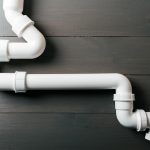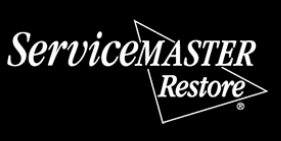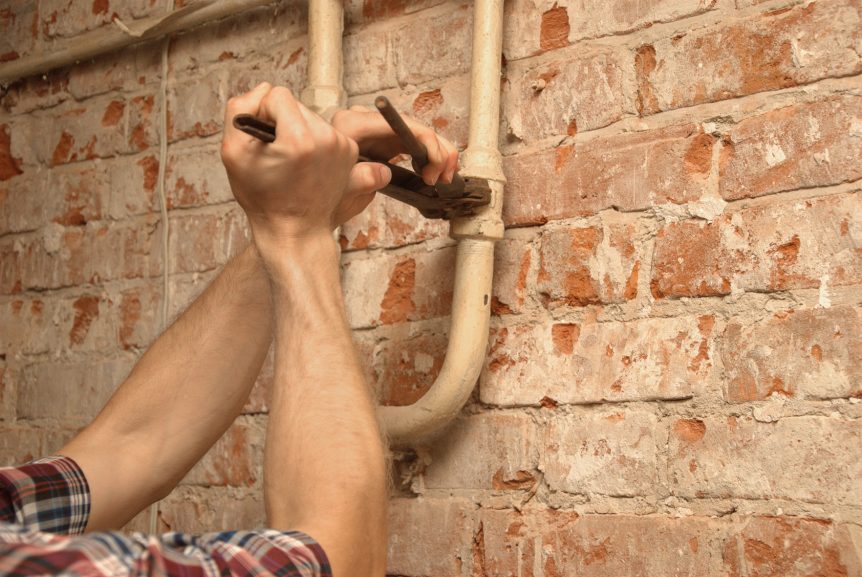When sewage waters back up into a home, the contamination poses as highly unsafe and hazardous. Cleanup itself requires experienced professionals, since handling the polluted mess is dangerous to human health. The best way to keep sewer waters out of your property is to know what triggers backups and to follow a few practical prevention tips.
What is a sewer backup?
The city’s sanitary main sewer line is positioned under the residential street and connects with properties. Rather than flowing into the municipal sewer, sewage water makes its way back up and into the home’s drains, giving rise to what is known as a sewer backup.
What are typical causes of sewer backups?
A blockage in the city sanitary main may result in sewer water traveling back up the floors drains and into a home. Clogged city sanitary mains are rarely rapid events and occur slowly. The gradual nature of backups caused by blockages gives homeowners ample time to call a licensed plumber.
Tree roots are notorious for damaging sewer lines. Roots infiltrate the lines through tiny cracks; but, as they grow, the cracks expand along with them and result in extensive damage to the sewer lines. Blockages in the sewer lines are also typical consequences of substantial tree root growth.
Many older homes feature clay pipes in the sewer lines. Clay pipes are far more susceptible to cracks than plastic pipes. Plus, the porous nature of clay pipes attracts tree roots, which latch onto the pipes’ surfaces and cause a host of mounting damages.
Homeowners who suspect city tree roots as the cause of damage to the sewer lines should contact a plumber. The skilled professional will communicate with city officials, who will obtain root samples. If the sewer line damage is caused by city trees, the municipality is responsible for cleanup expenses.
Collapsed, broken or otherwise damaged sewer lines lead to potential sewer backups in a home. Damaged sewer lines often occur in dated homes. The materials, such as clay or cast iron, used in the pipes of older properties are less enduring than the more efficient HDPE pipes used today.
Heavy rains are often responsible for sewer backups. The city’s sewer lines are built with a limited capacity, making long-lasting downpours detrimental to the pipes. The excess rainwater that overflows from these limited-capacity sewer lines can potentially back up into a home’s sewer line.
Once homeowners know the potential triggers of a sewer backup into the home, they can take preventive measures to reduce the chances of the disastrous event.
What are ways to prevent sewer backups?
Sewer lateral maintenance is the homeowner’s responsibility, since the homeowner owns the lateral. Homeowners know the lateral is blocked when, in dry weather, water seeps into the basement. During such a blockage, the water used in the home has no easy exit into the city’s sanitary sewer.
Every five or ten years (depending on the age of the home), conduct a lateral inspection by hiring a professional plumber. Crews may dig a trench to access significantly damaged laterals, giving them the chance to lay new pipes. Newer laterals feature PVC pipes, which are less resistant to cracks.
Newer technologies allow plumbers to inspect and repair laterals with minor damage without having to dig large trenches. A high-definition camera is used to view the insides of the pipes. Modern technology identifies pipe failures, the pipes’ interior conditions and the connections between pipes.
Cut invasive tree roots periodically if the greenery roots damage sewer lines. Alternately, spread growth inhibitors, like copper sulfate, to discourage tree roots from growing into the pipes. When the tree roots have already done significant damage, replace the lines with plastic pipes.
The sink is not an alternative to the trash can. Discard waste properly to prevent buildup in the sewer line. Do not throw grease into the sink. The liquid matter will solidify down the cooler recesses of the pipes and main sewer line, causing severe blockages and eventual sewer backups.
Products that contain grease compounds, like butter, margarine, sauces, lard or shortening, should not be tossed into the sink drain. Egg shells, rice, pasta and similar fibrous food scraps have no place in the drain if you intend to safeguard it from obstruction and a subsequent sewer backup.
Clogs in the sewer line are the ultimate enemy. Do not flush non-flushable items down the toilet. Examples of items to never flush down a toilet include paper towels, diapers, feminine products and flushable wipes. These products fail to disintegrate like toilet paper does.
Homeowners who install backwater prevention valves are on the right track when it comes to preventing sewer backups. When properly installed, the valve allows water to flow out while preventing it from re-entering the home. The valve itself is installed directly into the sewer line in the home’s basement.
When sewer backups make an unwelcome entrance into your home or business, consult a professional water damage restoration expert, like ServiceMaster Disaster Restoration and Recovery. Trained to successfully tackle all sorts of water damage, including damage that results from floods, pipe bursts or humid conditions, technicians will restore your property to its pre-disaster state.
Specialists from ServiceMaster Disaster Restoration and Recovery utilize powerful dehumidifiers, high-tech air movers and hydroxyl technologies to eliminate all excess moisture from the premises. Affected belongings, like carpets and furniture, receive a thorough drying treatment and professional cleaning.
Sewer backups, which are potentially polluted with E. Coli, hepatitis and other bacteria, are toxic to human and pet health. The experts from ServiceMaster Disaster Restoration and Recovery are licensed and trained to safely remove and dispose of the contaminated waters.
Flood damage is severely ruinous to properties. When you encounter water damage of any gravity, call ServiceMaster Disaster Restoration and Recovery immediately to thwart its spread and its damaging effects. Specialists stand by 24 hours a day to respond to emergency calls.

Steve VanDenBerg is the owner of ServiceMaster Disaster Restoration and Recovery. He has over 30 years of experience working within the restoration industry and successfully leading start-ups, turnarounds, acquisitions and mergers, and rapidly growing companies.
Steve earned his BS in Business & Accounting from Calvin University in Grand Rapids, MI and began working for DSI Holdings as their Chief Financial Officer. When Steve began with DSI Holdings, they were running an underperforming ServiceMaster Restore franchise with one location. Steve implemented new policies and procedures for accounting and finance as well as a professional sales plan that increased profits eightfold over his time as the CFO. He was then promoted to President and CEO and in this time, he expanded the company from two locations with $4M in sales to 12 locations and $45M in sales. DSI Holdings became one of the largest disaster restoration companies in the U.S. and helped with major restoration projects throughout the U.S. and around the world.
Steve purchased ServiceMaster DRR in 2015 when the business was in decline. Drawing on his years of experience in turning around struggling ServiceMaster franchises, Steve overhauled our operations, including finance, sales, and marketing, which led to a quick turnaround. Within Steve’s first 24 months, sales increased by 60 percent. Steve also helped greatly improve our operating margins and established a relationship with California’s largest residential insurance company. Under Steve’s leadership, we have become one of the largest disaster restoration providers in California.
Steve has found great success in turning around struggling and stagnant restoration franchises by changing the business model and strategy, greatly increasing sales and profits. Many of the changes he has implemented have even been adopted by the franchisor into their operating model.



